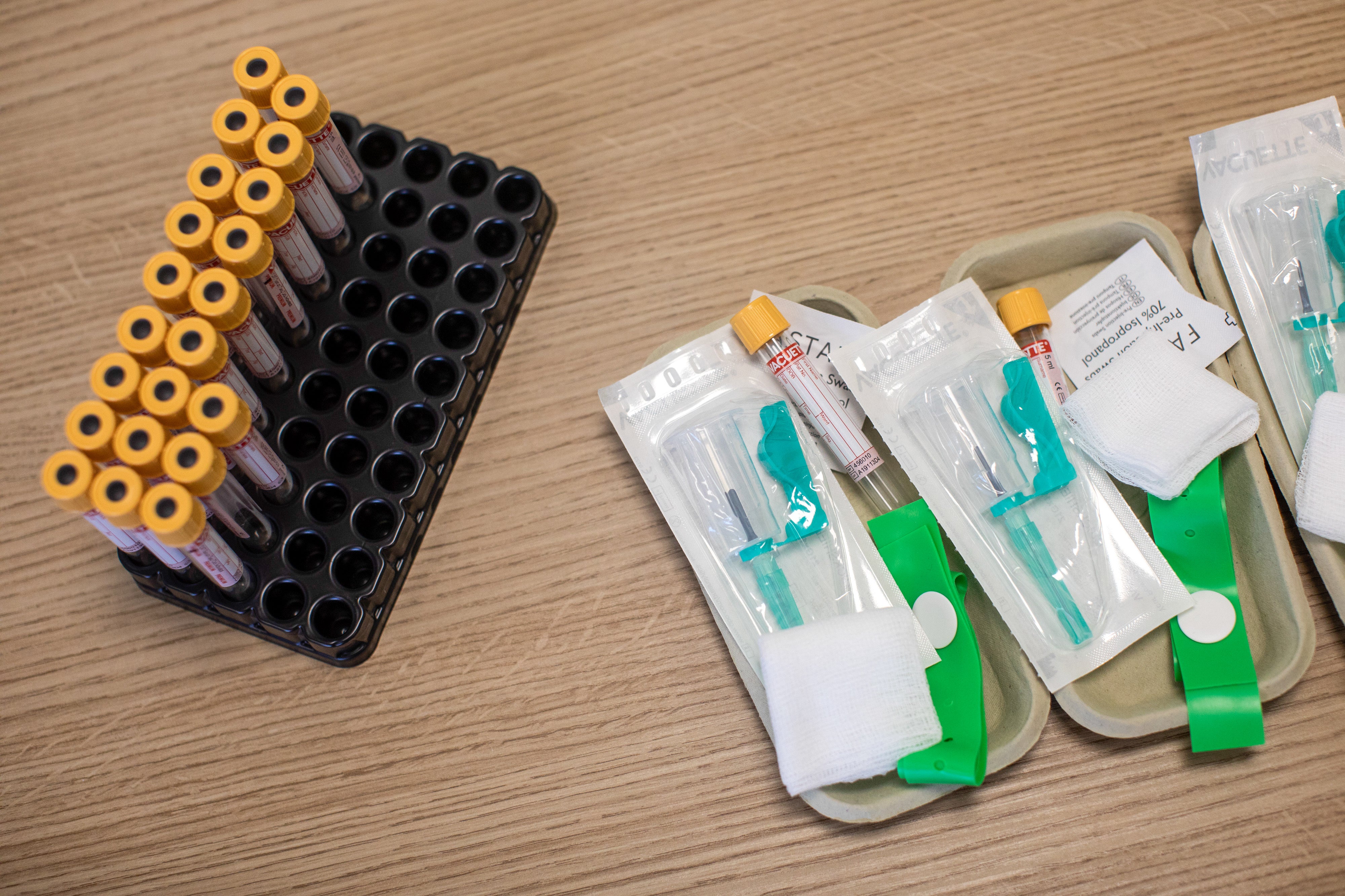Coronavirus: Government buys one million antibody tests despite ‘lack of evidence’ of accuracy
Ministers accused of ‘jumping the gun’ by spending millions on home-use kits without reliable evidence being published

Your support helps us to tell the story
From reproductive rights to climate change to Big Tech, The Independent is on the ground when the story is developing. Whether it's investigating the financials of Elon Musk's pro-Trump PAC or producing our latest documentary, 'The A Word', which shines a light on the American women fighting for reproductive rights, we know how important it is to parse out the facts from the messaging.
At such a critical moment in US history, we need reporters on the ground. Your donation allows us to keep sending journalists to speak to both sides of the story.
The Independent is trusted by Americans across the entire political spectrum. And unlike many other quality news outlets, we choose not to lock Americans out of our reporting and analysis with paywalls. We believe quality journalism should be available to everyone, paid for by those who can afford it.
Your support makes all the difference.The government is to buy one million home antibody tests from a group of British companies, despite concerns from experts about “a complete lack of reliable public evidence” for their accuracy.
The Department of Health and Social Care is to spend millions on the finger-prick kits, developed by the UK Rapid Test Consortium (UK-RTC), and said they would be rolled out across the UK to help build a picture of how far Covid-19 has spread.
But ministers have been accused of “jumping the gun” on purchasing the AbC-19 tests, which have only been assessed in one “critically flawed” published study.
The consortium, led by Abingdon Health, was set up to develop a British coronavirus antibody test earlier this year after Matt Hancock ordered 3.5 million home kits from China. The government’s testing chief later concluded the Chinese kits were not fit for widespread use.
Public Health England (PHE) has conducted independent evaluation of the UK-RTC kits but its findings have not yet been made public or peer-reviewed.
Jon Deeks, professor of biostatistics at the University of Birmingham and head of the Royal Statistical Society’s working group on Covid-19 tests, said there were major questions about the government’s decision to purchase the kits while the “results still are secret”.
“Whilst we are waiting to see valid evidence of how well it performs, the government has jumped the gun in purchasing the test before the independent studies evaluating it are finished or available,” he added.
“There are many other similar tests developed by UK and overseas companies that have been available for months, for which there is good evidence of their accuracy, and have been sold around the world but not in the UK. Without the completed studies of the AbC test, we do not know whether it is better, worse or the same as these other tests.
“The government is failing to show us any valid evidence at all that suggests that spending millions buying these tests is sensible.”
He said ministers’ decision to purchase the tests “despite the complete lack of reliable public evidence” undermined their commitment to “follow the science” on the pandemic.
Hayley Jones, a senior lecturer in medical statistics at the University of Bristol who worked with PHE on its evaluation of the AbC-19 tests, said the results “will be released shortly” and were based on 4,842 blood samples.
But she suggested the only previously published data on the tests – following a study by Ulster University and Abingdon Health – had overestimated their accuracy and said she had “major concerns” about the methodology used.
Prof Deeks also described the earlier study as “critically flawed”. He has previously said data published by the company in July, showing the tests to be 99.4 per cent accurate, “cannot be trusted”.
Abingdon Health said PHE’s evaluation would be published “in due course” following peer review.
The company began mass production of the tests – designed to show results within 20 minutes – in August and said the first kits would be delivered early this month.
Health minister Lord Bethell said the tests would “provide critical insight into how the infection has spread, growing our understanding of coronavirus so that we can better respond to it”.
But Dr Jones stressed the government must make it clear to the public that people should not relax social distancing if they test positive as there was not yet strong evidence that coronavirus antibodies provide immunity.
“For now, any individual who receives a positive antibody test result should interpret it with caution and not change their behaviour as a result,” she added.

Join our commenting forum
Join thought-provoking conversations, follow other Independent readers and see their replies
Comments